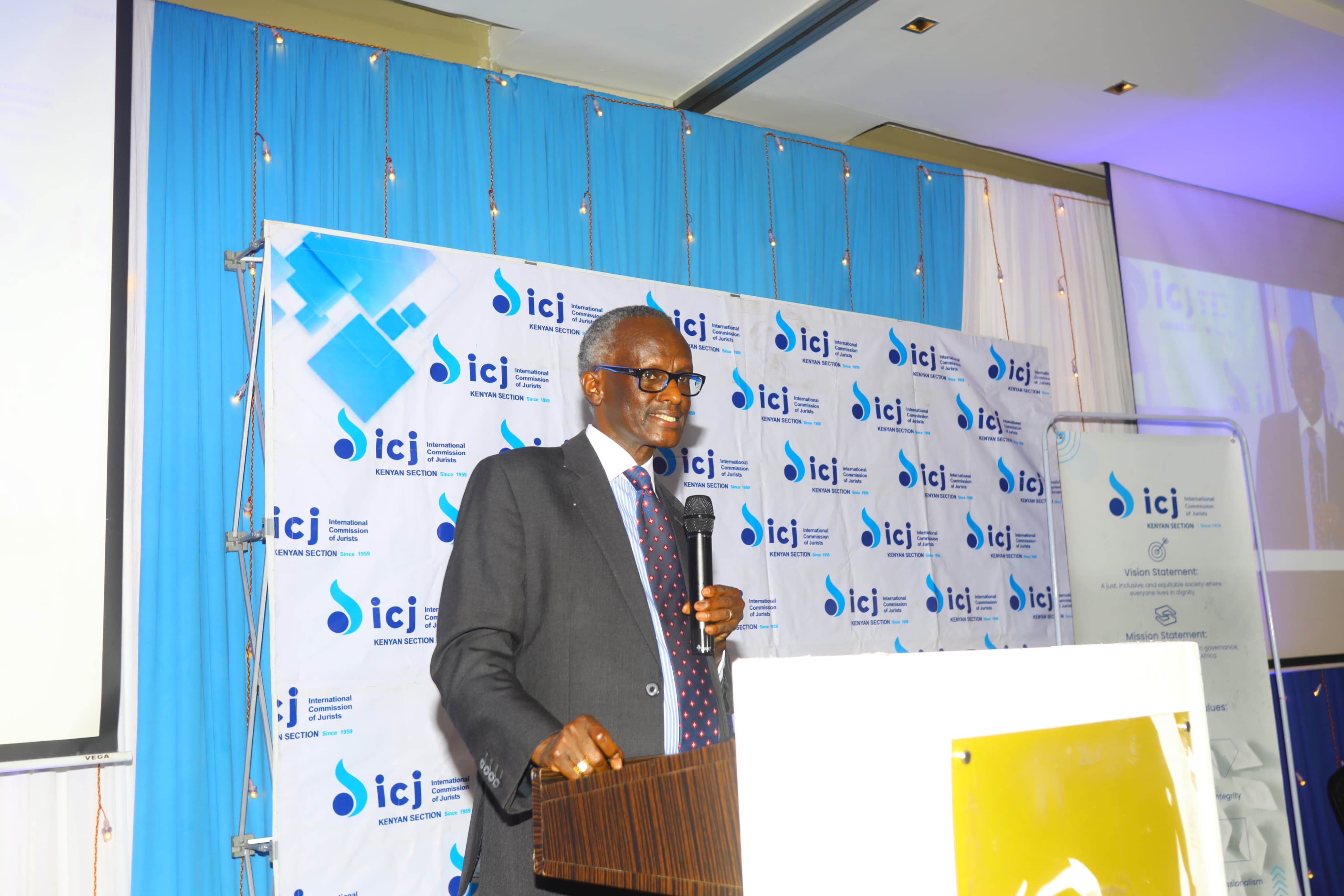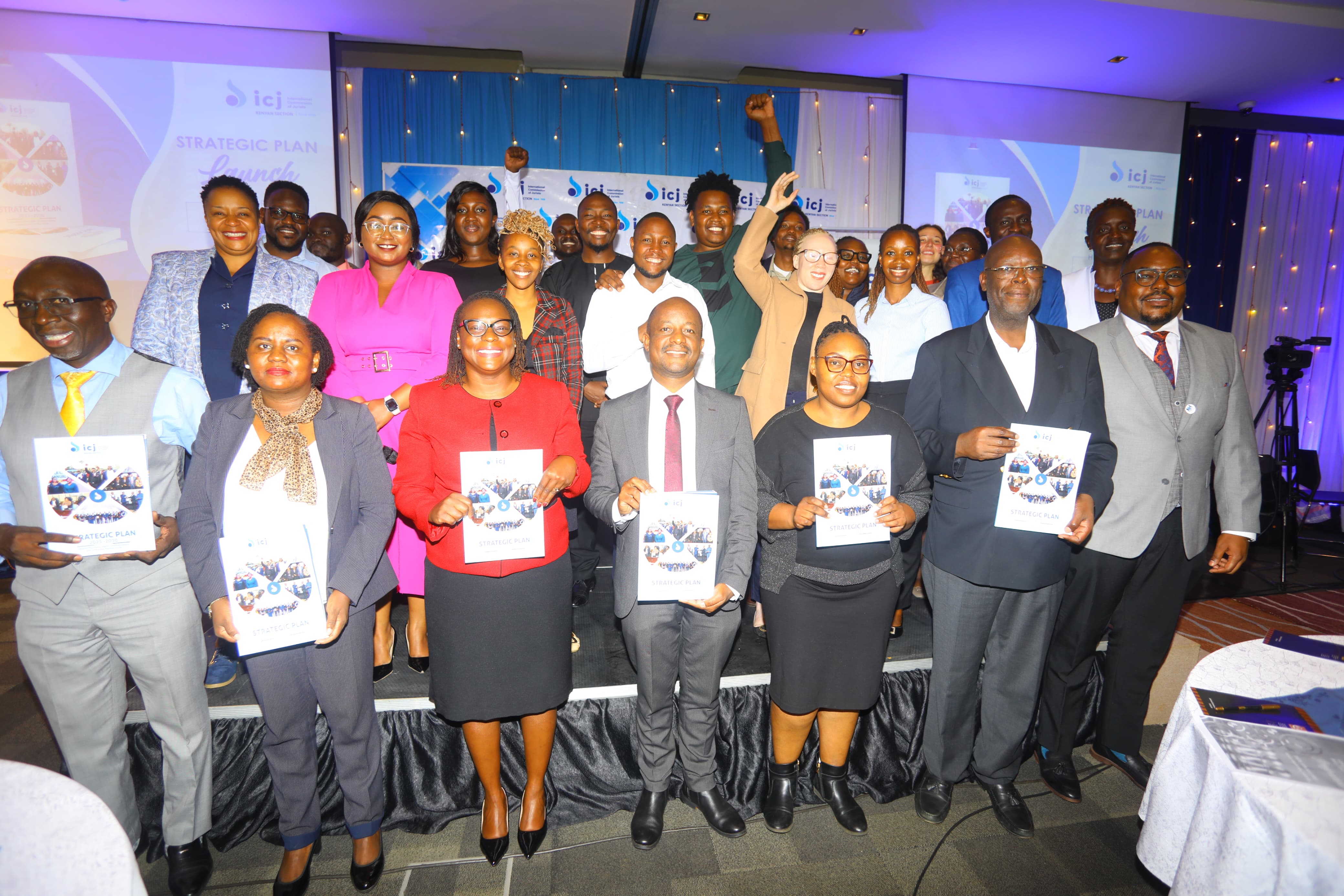NAIROBI, Kenya – The Kenyan Section of the International Commission of Jurists (ICJ Kenya) launched its 2025–2030 Strategic Plan in a ceremony marked by strong affirmations of its role in promoting justice, democratic governance, and human rights across Africa.
The event was graced by Supreme Court Judge Hon. Justice Isaac Lenaola who served as the Chief Guest. In his keynote address, Justice Lenaola lauded ICJ Kenya as a “steadfast beacon of democracy,” calling the new strategic plan a “significant milestone in the pursuit of human rights, justice, and the rule of law.”
“You have been instrumental in holding power to account in more ways than one,” Justice Lenaola noted. “Through your advocacy, public statements, and engagement with key institutions, you have consistently demanded accountability from the executive, parliament, and even the judiciary.”


The launch marked the beginning of a six-year roadmap designed to build a just, inclusive, and equitable society where every person lives in dignity. Speaking during the event, ICJ Kenya Chairperson Protas Saende emphasized the need for reflection, learning, and bold action to meet the challenges ahead.
“This plan will serve as the roadmap to achieve our vision and fulfill our mission of championing human rights, upholding democratic governance, and strengthening justice and the rule of law across Africa,” said Saende.
The strategic plan focuses on enhancing judicial independence, capacity-building for legal practitioners, and expanding grassroots access to justice. ICJ Kenya has already trained 180 paralegals and 100 community justice actors, demonstrating its commitment to empowering local communities and building public trust in justice systems.
Notably, ICJ Kenya is a recognized authority in international criminal justice on the continent. It has supported justice initiatives for atrocity crimes in Sudan, Burundi, and Rwanda and intervened in 20 landmark cases involving international crimes and gross human rights violations over the past five years.
The organization has also made strides in advocating for media freedom, decriminalization of petty offenses, electoral justice, and police reforms. Saende acknowledged the critical role of development partners, legal peers, and civil society allies in supporting these initiatives.

In developing the new strategy, ICJ Kenya conducted a comprehensive review of its mission, vision, and operational frameworks. The resulting Theory of Change aligns with its refined goals, emphasizing institutional resilience, digital activism, youth engagement, and a stronger research culture.

“We are committed to fostering a resilient and impactful organization that champions the rights of all individuals,” Saende added, pledging to grow ICJ Kenya’s membership base and cultivate new avenues for civic engagement and governance reform.
As the organization prepares for the future, it called for continued collaboration and support amid evolving global and regional challenges.
DOWNLOAD: https://icj-kenya.org/news/sdm_downloads/icj-kenya-strategic-plan-2025-2030/






